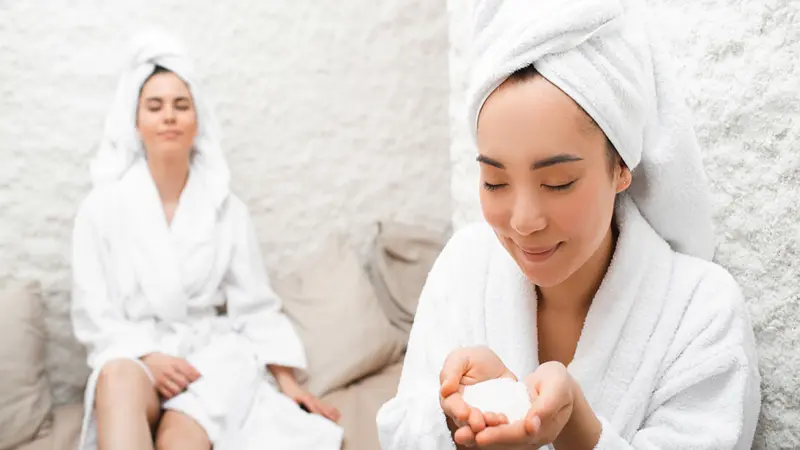

Complementary and Alternative Medicine (CAM)

Complementary and Alternative Medicine (CAM)
Does Salt Therapy Work?
There’s a growing wellness trend of salt therapy, or halotherapy, that claims to impart better breathing, healthier skin, and stress relief.
Does it work?
How It Began
Salt therapy is founded on an observation by Dr. Feliks Boczkowski, a Polish physician who lived nearly 200 years ago. He noticed that workers in the Wieliczka Salt Mine didn’t have lung issues like in other mines, leading to his belief in the healing power of salt.
Salt rooms expose you to microscopic salt particles in the air, and there are two types of salt therapy rooms:
- “Active” rooms: Otherwise known as halotherapy, these rooms feature machines that break salt apart and circulate the particles, which allows them to be breathed in and exposed to your skin.
- “Passive” rooms: Typically more meditative, these climate-controlled rooms are filled with large amounts of salts, typically a variety of Dead Sea, Himalayan, rock salt, etc.
For a true halotherapy experience, you need an active room with a particle generator.
Health Benefits
Salt rooms are claimed to help address a variety of health issues, including:
- Asthma
- Bronchitis
- Chronic obstructive pulmonary lung disease (COPD)
- Cystic fibrosis
- Respiratory allergies
- Smoker’s cough (chronic cough)
Breathing in salt particles appears to thin mucus, allowing a cough to be more productive and remove phlegm. However, there isn’t a lot of rigorous research to support this theory, and the data is mixed.
Halotherapy is also said to boost skin hydration, leaving it smoother and more even, and some claim it helps balance pH levels and clear up eczema. However, there isn’t scientific proof to back these claims.
Similar to saline sprays and rinses to clear the nose and sinuses for better breathing, breathing in dry salt may have a similar effect, but there isn’t enough research to verify the claim.
Salt rooms can also be ideal settings for meditating, calming the nervous system, and reducing stress, especially if the room is calm, dimly lit, and has soft music playing. However, a similar effect could be accomplished without the salt component.
Potential Risks
Halotherapy shouldn’t cause any issues for healthy people, but you may cough more after a halotherapy session due to all of the salt particles in the air.
There are currently no defined standards for halotherapy, so be sure to look for a salt room in an office or spa where treatment is overseen by a medical professional.
Halotherapy is not a substitute for medicine or medical care, and you should consult your doctor before trying it.
REFERENCES
Cleveland Clinic. (2022, May 23). Do salt rooms really offer health benefits? https://health.clevelandclinic.org/salt-cave-benefits



 By
By








